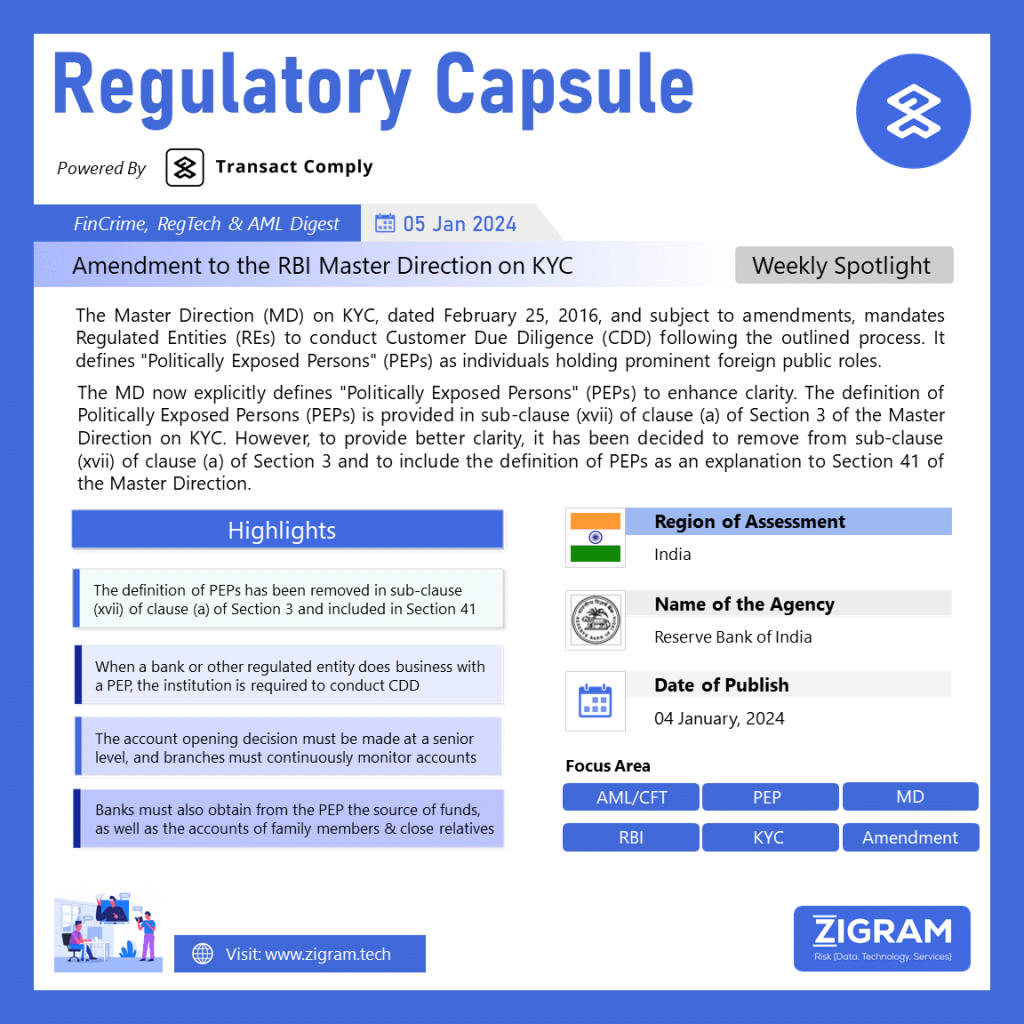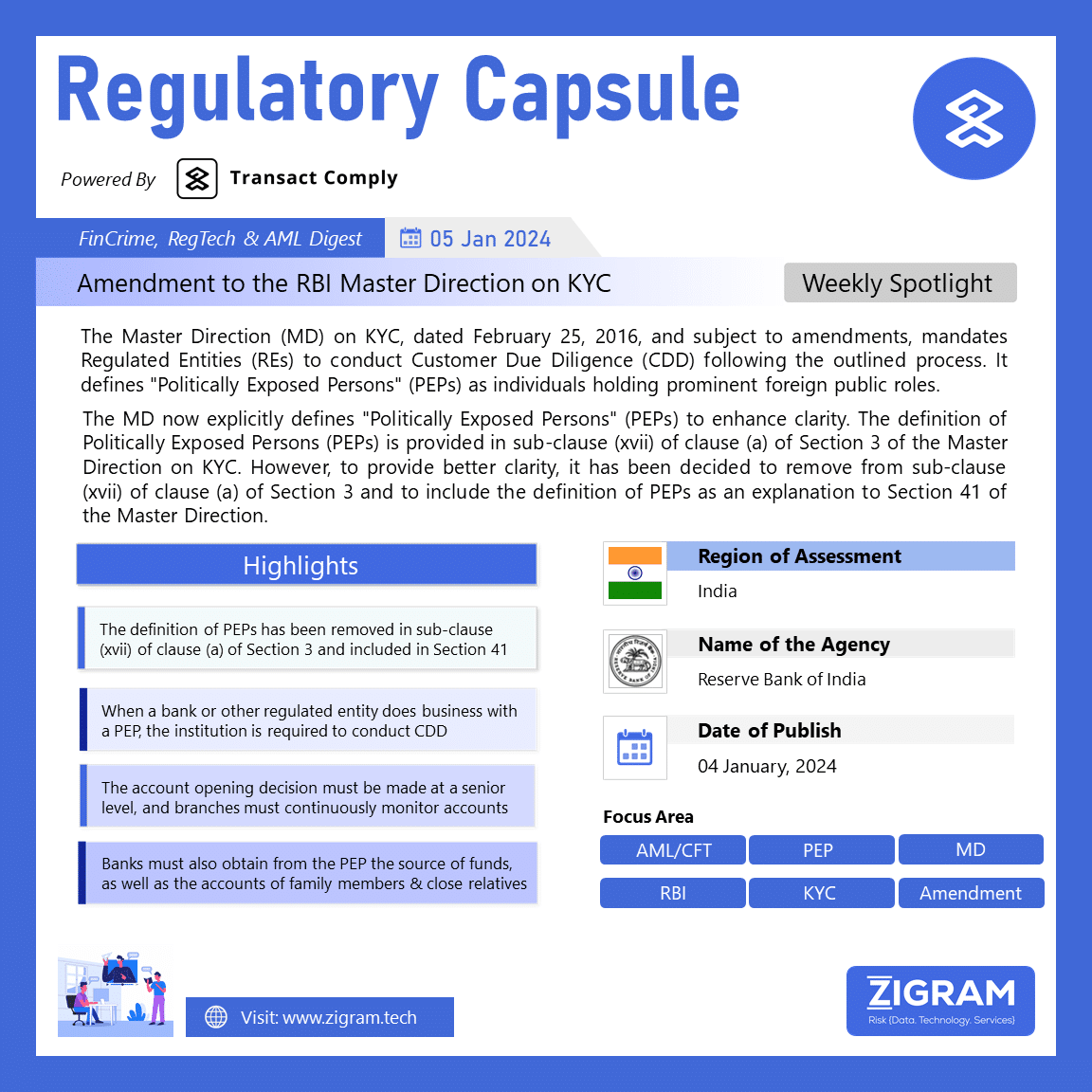Published Date:
In the global fight against money laundering (ML) and terrorist financing (TF), collaborative initiatives are pivotal. The Financial Action Task Force (FATF), established in 1989, plays a central role in setting international standards and facilitating the effective implementation of legal, regulatory, and operational measures. Member countries, including India, are committed to upholding measures that protect the integrity of the international financial system.
India, as a FATF member, has implemented comprehensive frameworks to combat ML and TF. The Prevention of Money-Laundering Act, 2002, and the Prevention of Money-Laundering (Maintenance of Records) Rules, 2005, constitute the legal framework governing Anti-Money Laundering (AML) and Countering Financing of Terrorism (CFT) in the country. These regulations empower Regulated Entities (REs), such as banks and financial institutions, to follow specific customer identification procedures when establishing account-based relationships or conducting transactions.
The cornerstone of these measures is the Master Direction (MD) on Know Your Customer (KYC), issued on February 25, 2016, with subsequent amendments. The MD mandates that REs undertake Customer Due Diligence (CDD) for their customers, following the prescribed processes outlined in the directive. This involves thorough scrutiny of customer information and transactions to identify and mitigate ML and TF risks.
One critical category within the MDs is “Politically Exposed Persons” (PEPs). PEPs are individuals who hold or have held prominent public positions in foreign countries. This includes Heads of States or Governments, senior politicians, high-ranking government, judicial, or military officials, senior executives of state-owned corporations, and significant political party officials. The definition of PEPs is provided in sub-clause (xvii) of clause (a) of Section 3 of the MD on KYC.
Recognizing the significance of clearly defining and identifying PEPs, an enhancement has been made to the regulatory framework. The definition of PEPs is now explicitly included as an explanation to Section 41 of the Master Direction. This adjustment aims to provide better clarity and streamline the process for Regulated Entities in identifying and managing the risks associated with PEPs.
By incorporating this clarification, the regulatory authorities seek to strengthen the AML and CFT framework, ensuring that financial institutions maintain the highest due diligence standards. Identifying and monitoring Politically Exposed Persons becomes integral in mitigating the potential risks associated with their financial transactions. This aligns with the broader goal of safeguarding the integrity and stability of the financial system, both at the national and international levels, in the ongoing efforts against financial crimes and illicit activities.
The Master Direction (MD) on KYC, established on February 25, 2016, and subject to amendments, mandates Regulated Entities (REs) to conduct Customer Due Diligence (CDD) following the outlined process. It defines “Politically Exposed Persons” (PEPs) as individuals holding prominent foreign public roles. The MD, for clarity, now includes the definition of PEPs as an explanation in Section 41, streamlining identification and reinforcing Anti-Money Laundering (AML) measures for REs in managing potential risks associated with PEPs’ financial transactions.
- #RegulatoryClarity2024
- #AMLComplianceUpdate
- #PEPIdentificationGuide
- #FinancialSecurityMeasures
- #KYCEnhancement2024
- #MDAmendmentAlert
- #RiskManagementUpdates
- #GlobalComplianceStandards
- #PEPManagementSolutions
- #AntiMoneyLaundering2024


